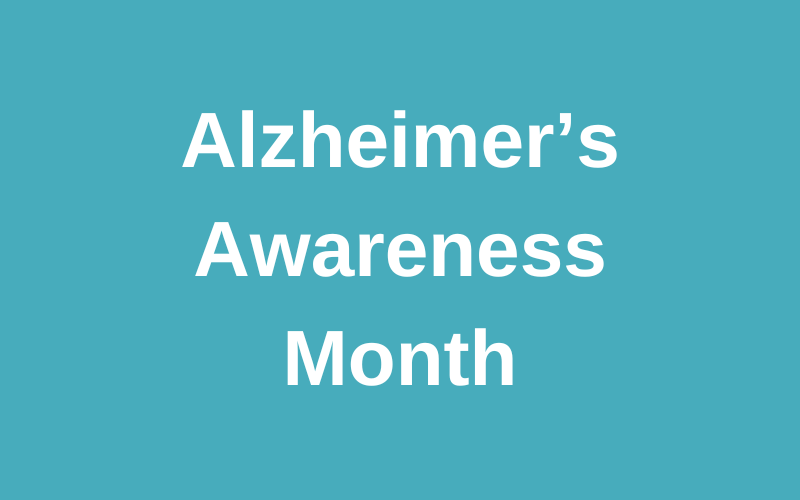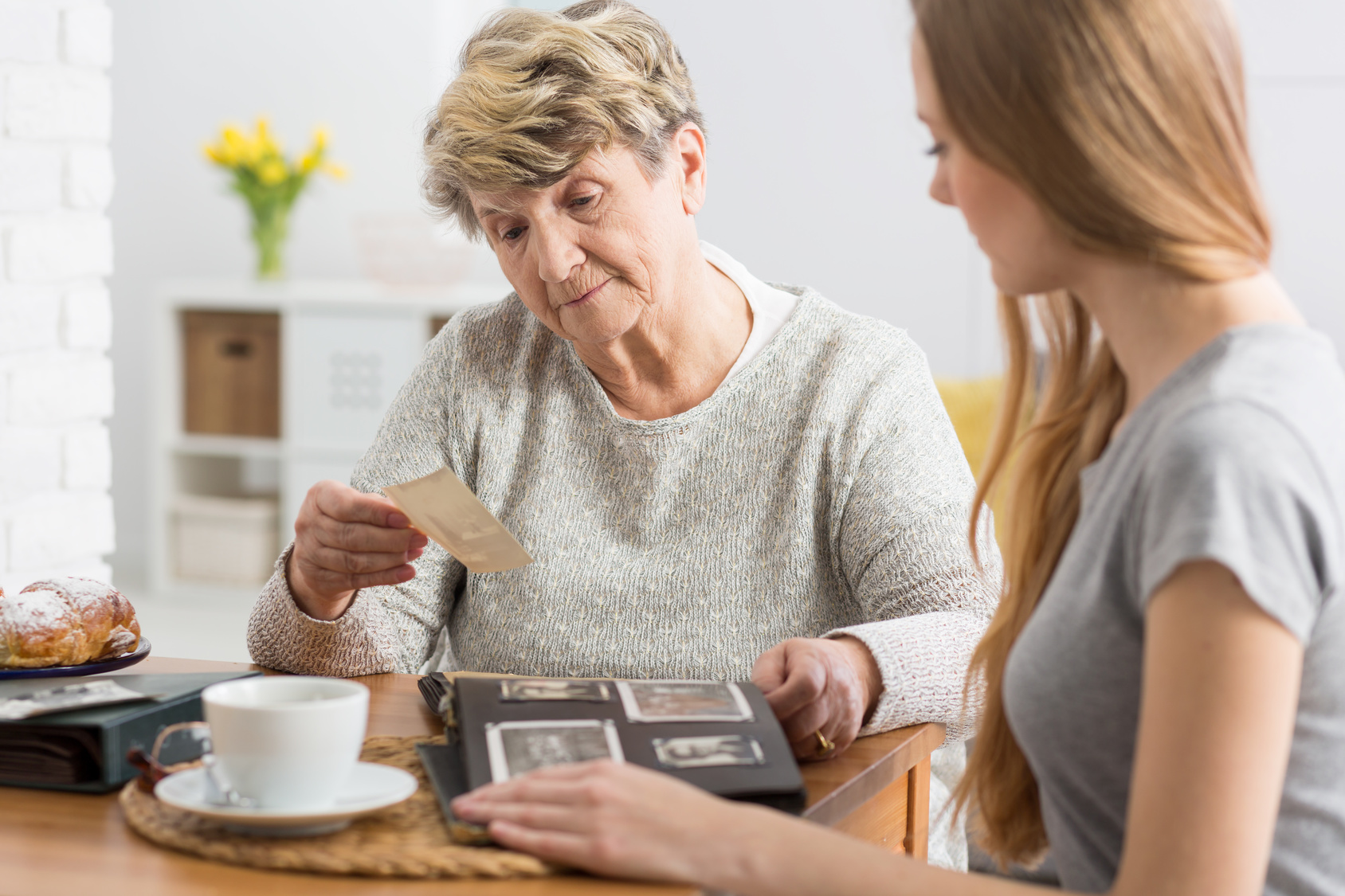
Sundowning begins to manifest when daylight lessens and darkness increases. Older adults, during this time of day, display different behaviors. The confusion, anxiety, and aggression they experience can be eased by professional caregivers who are experienced in dementia home care.
What is sundowning?
Sundowning is not a disease. Rather, it is a term used to describe a group of symptoms that begin in late afternoon and progress into night. It is most predominant in seniors diagnosed with Alzheimer’s disease or other forms of dementia. The exact cause of sundowning is not understood.
While experts are not clear as to the precise trigger, some conclude that sundowning occurs in Alzheimer’s patients whose brain changes disrupt their biological clock. Confused wake-sleep cycles result. These older adults become agitated and show other symptoms of sundowning.
Certain situations can lead to symptoms of sundowning. Seniors who are overly tired can become restless as day transitions to night. Hungry or thirsty older people can also be affected. Depression, pain, and boredom are likely to bring on sundowning.
What are signs of sundowning?
Late afternoon through early evenings are periods when signs of sundowning appear. Seniors affected by it become increasingly confused or anxious. They may begin to wander or pace. Some aging individuals might yell, even if it is uncharacteristic for them to behave in an aggressive manner.
Home care professionals provide invaluable support to older adults who are affected by sundowning. Experienced dementia caregivers identify and manage the various symptoms that emerge. These elder care professionals skillfully reduce their aging care recipient’s discomfort, agitation, pacing, and restlessness.
Dementia caregivers respond to seniors who display agitation in the early evenings by calmly listening to their frustrations. The professionals are experts at providing gentle reassurance. They let the senior know that their concerns are valid and that their situation will turn out well.
- Reduce Noise
Dementia patients can become aggravated by noise and clutter. When the period of sundowning arrives, dementia caregivers take steps to decrease the noise level in the home, such as by turning off a loud radio. They also reduce the number of people in the senior’s room to promote calmness.
- Use Distractions
Professional caregivers are experts in utilizing distractions to return an aggravated dementia patient to a state of calm. Offering snacks and drinks can quickly distract an agitated senior. If the older adult favors an object, the dementia caregiver may give it to them as a means of distraction.
Similarly, the dementia caregiver may turn on an uplifting television show to distract the senior from symptoms of sundowning. The professional may suggest a simple activity, such as folding towels or dinner napkins, that will refocus the elderly person’s attention.
- Set Aside Quiet Time
Dementia caregivers are aware that sundowning symptoms occur before bedtime. They help their aging care recipients cope by ensuring evenings are relaxing and quiet. Caregivers play soothing music or the sounds of nature, read to the dementia patient, or accompany them on a short walk.
During this time, caregivers may ask the senior’s family to call. Hearing a familiar voice is reassuring to a dementia patient. Also helpful is when dementia caregivers bring out the senior’s family photo album and look through them together, thereby creating a familiar, relaxed environment.
- Limit Caffeine
Professional home care providers do not serve caffeinated beverages, such as teas, coffees, or colas, to elderly individuals late in the day. Likewise, they do not give seniors alcoholic drinks, because they can trigger a bout of anxiety or confusion and worsen sundowning symptoms.
- Establish a Schedule
Seniors living with dementia thrive in a daily routine. Dementia caregivers therefore establish a schedule, ensuring the older adult is served meals, gets ready for bed, and wakes up at the same time each day. Activities are also scheduled for the morning or afternoon.
Leisure activities or exercises are scheduled for the daytime hours. Dementia caregivers plan early activities so that the senior is exposed to enough daylight to help encourage nighttime rest. Daytime napping is discouraged so that the elderly individual receives quality sleep at night.
- Create an Optimal Sleeping Environment
The senior’s sleeping environment is helpful in combating symptoms of sundowning. Professional caregivers adjust the lighting in the bedroom so that it is softer in the evenings. The surrounding darkness may be unfamiliar and upsetting to seniors, so caregivers turn on a nightlight.
- Provide Transport to the Doctor
When sundowning is chronic, the senior may consult a physician. Professional caregivers provide transportation to the doctor’s office. A medical exam can pinpoint any pain, medication side effects, or sleep disorders contributing to sundowning. If medication is prescribed, caregivers give medication reminders.
Dementia home care is vital to the health and well-being of seniors affected by sundowning. When your elderly loved one needs extra support at home, choose Assisting Hands Home Care for exceptional dementia care services. We promote the physical and emotional health of care recipients.
Our dementia caregivers provide all of the abovementioned services in the comfort of the senior’s home. We also serve as trusted companions to care recipients. Caregivers play games, hold pleasant conversations, and take seniors on safe outings in efforts to promote healthy socialization.
Memory care from our home care agency includes help with the activities of daily living. We provide discreet assistance with personal hygiene tasks, shop for fresh groceries, prepare nutritious meals, and ensure our elderly care recipients are hydrated every day.
Seniors with dementia have special needs that are fulfilled by our dementia caregivers. When dementia patients wander, for instance, our memory caregivers gently guide them back. Since dementia patients should never be left alone, we provide continual monitoring to ensure their safety.
Families place full trust in the memory care services provided by Assisting Hands Home Care. Our dementia care is an important resource for seniors affected by any stage of Alzheimer’s. We serve the elderly in Coppell, TX | Dallas, TX | Highland Park, TX | Richardson, TX | University Park, TX , and the surrounding areas. Call us today at (214) 760-6944 to schedule a free in-home consultation.
Sources:
https://www.nia.nih.gov/health/tips-coping-sundowning







